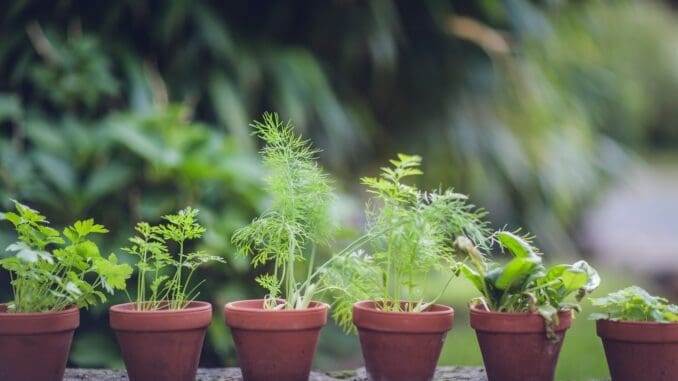
With multiple advancements in the health industry, we tend to forget the rich and vast medicines in our vicinity. With more rampant diseases, the need to grow natural medicines has increased. It is much better to rely on natural sources than a combination of chemicals. Some medicinal plants and herbs can be quickly grown in your own backyard.
Here are a few herbs that can help to complete a garden pharmacy.
Pudina (Mentha Spicata)
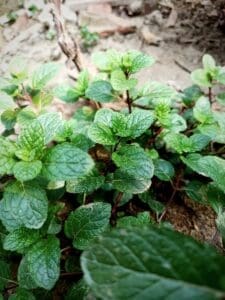
Popularly known as Pudina in the Indian subcontinent, spearmint originally belonged to the mint herb family of Europe. It has multiple medicinal properties. But mainly it is used as a carminative. Its carminative properties help cure stomach ailments like gastric problems, indigestion, etc. It also helps to reduce headaches associated with fever and cold.
Many ointments use pudina as an ingredient due to its anti-inflammatory and analgesic properties. Its potential uses include relief against toothache, earache, and tongue coarsening. Much medical research is going into the versatility of pudina as its complex composition adds to its value as a medical powerhouse.
Pathar Choor (Coleus barbatus)
It is a tropical plant belonging to the Coleus species. It produces an extract called forskolin, a key ingredient in pharmaceutical preparations and a mild relief for infants from the common cold and flu. It is essential in the study and research of cells, paving the way for new discoveries in cell biology.
Aloe vera
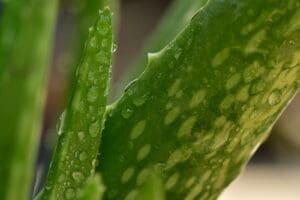
It is a perennial plant that produces a gel-like substance perfect for skin ailments and treatments. It is also used in many creams and cosmetics. The gel of this plant is a natural ointment used to treat burns, wounds, and abrasions.
The polyphenols present in the gel prevent many harmful bacteria from proliferating in the human body, making it antimicrobial. It can also be used as an alternative to mouthwash and is known to fight dental plaque. Aloe vera juice is versatile as well. It lowers blood sugar, acts as a natural laxative, and keeps the skin clear.
Mithi Patti (Scoparia dulcis)
This plant is popularly known as Liquorice weed. It is a flowering plant in India and Bangladesh, often regarded as a weed. But its medicinal properties make it a valuable and economical plant to include in your garden. In traditional medicine, it is used to treat diabetes and hypertension in multiple parts of the world.
Its extract is a well-known cure for kidney stones. It is also recommended by allopathic doctors. This property of the plant gives the plant its Tamil or Malayalam name, ‘ kallurukki.‘
Ginger (Zingiber officinale)
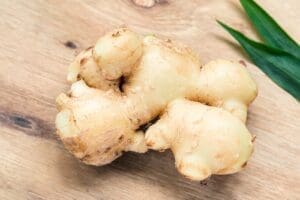
Ginger is one of the most popular medicinal plants as far as Indian traditional medicine is concerned. It is widely used to treat colds, nausea, arthritis, and migraines. Ginger is also a versatile plant that is antimicrobial and anti-inflammatory in nature. This makes it a good remedy for menstrual pains, constipation, intestinal gas, and other stomach problems.
Turmeric (Curcuma longa)
Turmeric is another versatile herbaceous plant that is known for its medicinal properties. Turmeric is well-known as a skin cleanser and purifier. It can be used to keep skin healthy and clean. It is a natural antiseptic that can also treat wounds and injuries. It is rich in antioxidants and is an herbal medicine against arthritis, smallpox, chicken pox, and liver ailments.
Nutmeg(Myristica fragrans)
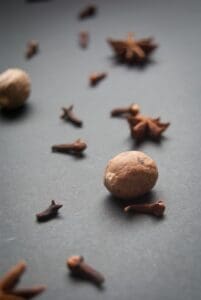
Nutmeg is a spice well known for its antibacterial properties that are effective against oral pathogens that cause bad breath and mouth problems. An intake of a small amount of nutmeg also keeps blood sugar under check. It also has antioxidant properties that protect the body against serious diseases like cancer, heart disease, and liver disease.
Vranaropani(Strobilanthes Alternata)
It is popularly known as ‘murikooti’ in Malayalam. It is a small plant that has purple-colored leaves. It is known as red flame ivy and is popularly used for curing venereal diseases and keeping a check on hemorrhages. It is also used to stop dysentery and promote healthy urination. It can also stop the bleeding of fresh cuts or wounds.
Tulsi (Ocimum Tenuiflorum)
Tulsi is easily one of the versatile herbs that promote overall internal housekeeping of the body. It is antimicrobial, radioprotective, cardioprotective, and anti-diabetic in nature. That makes it easily the best detoxifier and solid protection against countless diseases. It even protects the human DNA from complex diseases and prevents the damage.
The ability of tulsi to protect against harmful radiation and toxic materials in the environment and prevent them from damaging the body is remarkable. This makes it essential in treating liver, heart, and respiratory diseases.
Ashwagandha (Withania somniflera)
Ashwagandha is popularly known as the rejuvenator in Ayurveda. It has remarkable abilities to enhance the brain’s functions and improve memory. It fights nervous disorders and diseases. It also enhances the body’s ability to handle stress. The leaves are ideal for curing fever and painful swellings. It also is an excellent stimulant and increases sperm count. It is used extensively in preparing medicines for hysteria, anxiety, and memory loss.


Be the first to comment